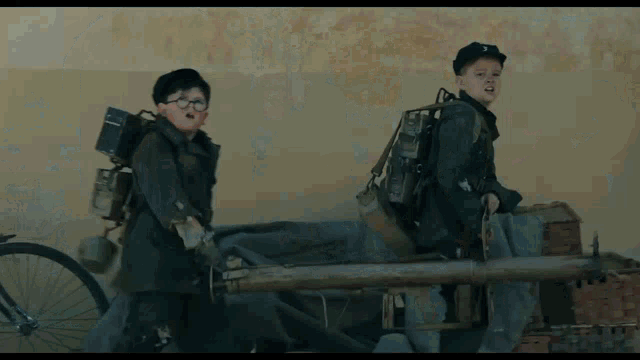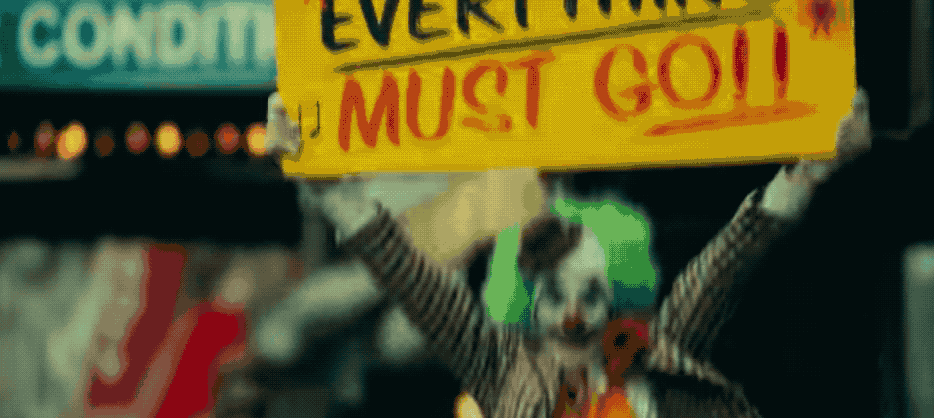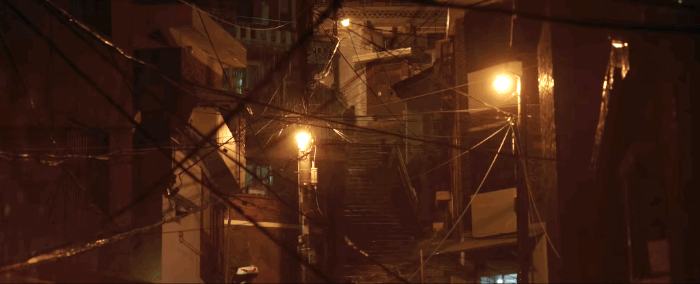Best Editing: Ranking Every Oscar Nominee
If cinematography is the art of capturing an image, editing is the process of assembling this footage and creating a cohesive story. Editing certainly isn’t forgotten about by the film viewing public, but we do think that it can be a little undervalued. This is understandable, because often times, good editing is something you don’t notice (whereas terrible editing is obvious). The best edited films are done so with flair, but many cases of adequately edited works are seamless enough to roll right past you. Well, the Academy took notice of these five films, which all contain — at the very least — solid examples of editing. There still are works that deserved a spot here (to be discussed very soon), mind you.
Here are your nominees for Best Editing, ranked from worst to best.
Biggest Snub: Once Upon a Time in Hollywood
We can (kind of ) forgive the Academy for neglecting to nominate 1917 here (part of the one-shot illusion is the very clean cuts between shots that you will mostly miss the first time you watch). However, missing out on Hollywood here is borderline unforgivable. You have your usual quick-shot sequences found in any Quentin Tarantino work, which are noteworthy on their own. Then, there are the jittery scenes (like Rick Dalton’s trailer freak out) that make the editing stand out. You also have the restrained use of cuts for specific moments (long passages of speeding down the highway, and the uncomfortable stare at the Spahn Ranch with uncertainty). Plus, that climactic back-and-forth blood bath? Yeah. We know Hollywood already has ten nominations, but it could have easily had eleven.
5. Jojo Rabbit: Tom Eagles
There are times where the editing is upbeat to match the comedic timing of a scene, but it’s usually pretty standard. We guess we can say that Jojo Rabbit’s editing keeps up with the intended mood of a scene, but does that make it an exemplary example of an edited film in 2019? Great instances don’t necessarily mean that the film is strong in this category throughout. We’d say the film is edited well enough, and that’s about it.
Our review of Jojo Rabbit
4. Joker: Jeff Groth
The editing work in Joker hops between frantic and lethargic, likely to put you in Arthur Fleck’s head throughout this single-perspective film. Like Jojo Rabbit, Joker’s editing is mostly standard. Both films may be here because of their awards season push; also the Academy noticed “Hey! These films we like are decently edited! Toss them in the cauldron!”. Having said that, there are times that the editing work stands out with this film, including the fluid timing during Fleck’s episodes, the quick-cuts saved for damaging moments (the climax is a great example), and the heavy focuses on Fleck’s various ticks at just the right times (his leg shaking, hands cracking, and bones popping). The editing here loves to fixate and tempt fate, and that’s kind of neat, we suppose.
Our review of Joker
3. The Irishman: Thelma Schoonmaker
Always nice to see the legend Thelma Schoonmaker being rightfully recognized. Her work in The Irishman may not quite be her best work, but that’s because she is the best in the business and has already cemented that legacy with previous films. Still, her signature style benefits The Irishman just enough. She knows how to be reserved enough, and let scenes speak for themselves. When she wants to flex her capabilities, she goes all in. Snippy cuts to heighten particular moments. Perfect timing to cause tension between two glaring characters. Finally, the occasional purposeful disruption is left in (when Frank Sheeran calls Jimmy Hoffa’s wife and an awkward cut starts the scene, leaving you feeling intentionally uneasy in a meta way); we’ve had a field day with online comments sections asking how a mistake was left in the film.
Our review of The Irishman
2. Parasite: Yang Jinmo
For the most part, Parasite is a regularly edited film, which is exactly what it asks for; a film this sleek doesn’t really need the craziest editing. However, there are moments where Yang Jinmo can really go to work. One particular moment we can recall is the “peaches” montage. Then, there’s the insane “reveal”. Okay, there’s also the “climax”. There are more than enough moments in Parasite, where the editing leaps out at you and then quickly retreats, allowing the rest of the film to continue organically. Jinmo’s editing is quite strong, and if it wasn’t for a particular other film, he could have been a frontrunner here.
Our review of Parasite
1. Ford v Ferrari: Michael McCusker, Andrew Buckland
Just like the leading pairing in Ford v Ferrari, it took a committed dynamic duo to dominate the awards race. If anything, like the Ford model submitted to the 1966 Le Mans, Ford v Ferrari was tailor-made as a tech award juggernaut. Even the downtime scenes are cut cleanly. Once you get to the racing sequences, this is an editing feast for the eyes: lighting quick cuts that somehow still feel smooth. The editing here is quite something, and it likely won’t even be a contest. It’s as if every sequence is set to a particular heartbeat, so the film is driven by the moments that cause your heart to race out of control. It’s the editing that makes the film as exhilarating as it is; Ford v Ferrari could have been a massive bore. What we’re saying is Ford v Ferrari was even considerable for a Best Picture nod primarily because of this editing, which spun an Oscar baited film into an absolute thrill ride.
Our review of Ford v Ferrari
Who we want to win: Either Ford v Ferrari (its strongest nomination) or Parasite, since Hollywood is nowhere to be found. The Irishman adding another award in Schoonmaker’s trophy cabinet would be cool, too.
Who we think will win: The only competition here is Ford fighting against Ferrari.
Tune in tomorrow for our next Academy Award category! We’re reviewing every single nominee.
Andreas Babiolakis has a Masters degree in Film and Photography Preservation and Collections Management from Ryerson University, as well as a Bachelors degree in Cinema Studies from York University. His favourite times of year are the Criterion Collection flash sales and the annual Toronto International Film Festival.








